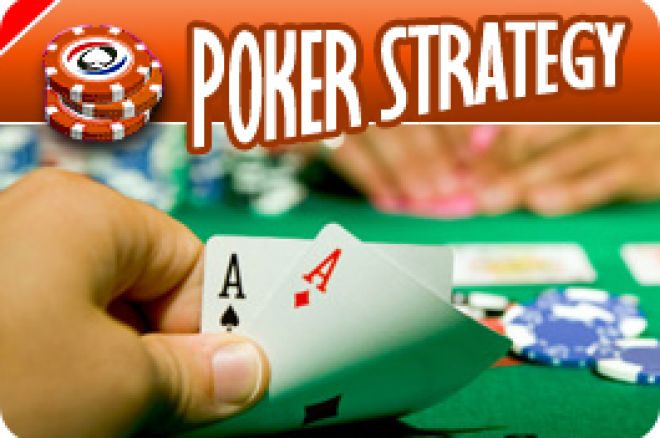H.O.R.S.E. Poker Strategy: In the Mix -- Chasing a Low is Chasing Trouble

I've discussed before the importance of starting with three low, suited, connected cards in seven-card stud hi/lo. Those are the hands that will most often improve to scoop the whole pot by showdown. It's true that high-only hands will scoop some of the time; but only when no other player in the hand has made a qualifying low. Thus, in the absence of a strong high-only starting hand like a big pair, players should aim to play three low, suited, connected cards. Forgetting to look for all three components is where most players usually run into trouble.
Take a look at how badly I played this hand early in a tournament. I was dealt (3?5?) 8?. The other up cards included four hearts and three clubs, along with an ace, two sixes, a nine, two tens and a king. My hand, in other words, probably wasn't worth the ante that I paid for it. Yet after one of the sixes brought it in, I completed! To be honest I can't remember why I thought completing with an eight door card was a good play, especially given the texture of my own hand and the remaining exposed cards.
The player with the ace and the bring-in called to fourth street, where the boards developed in the following fashion:
Bring-in: (X-X) 6?K?
Me: (3?5?) 8?7?
Other Player: (X-X) A?8?
Think about the ways my hand can potentially develop into a winning high hand. I have two hearts, but would need to catch three more on the next three streets with four already dead. My board is potentially straightening out, but those straights are centered around a six, two of which are already dead. I have absolutely no high-pair potential, as my strongest card is an eight, one of which is already dead. The likelihood of winning the high half of the pot is remote. Meanwhile, I'm still drawing at an eight, and if I lose one of my two customers, I'll be drawing just to get my money back!
The object of any split-pot game is always to scoop both halves of the pot. It's the only way to make any real money. By playing this hand, I have virtually assured myself that, at best, I will win half of the pot. That's okay as long as there are enough chasers to justify the investment. In this hand, the player with A-8 bet on fourth street, folding the bring-in. I opted to chase for a street and caught the 4? against my opponent's 3?. It was a bit of a trap card for me, giving me almost the worst possible low hand, 8-7-5-4-3 - only an 8-7-6 hand was worse. I also had no real high hand to speak of barring a miracle two-outer. But with a made low, I felt obligated to call my opponent's bet.
On sixth street I drew another four, the 4?, while my opponent caught a seeming blank, the J?. With an open pair, action was first to me. I bet. There was no sense checking, since I had no intention of folding and didn't see how my opponent could raise. He called, then called again when I bet the river. I finished with a pair of fours for high, and 8-7-5-4-3 for low. My opponent turned over 6?, 4? and 4? in the hole for a pair of fours with a better kicker, and an 8-6-4-3-A for low. Chasing the low half of the pot wound up costing me every bet that I put into the pot.
I made a similar mistake later in the tournament, playing a rainbow (2-8)-5 on third street, then catching a jack on fourth street and stubbornly refusing to fold it. I somehow decided that an open pair of jacks on fifth street was enough to go all the way to showdown, despite never improving from there and never making a low hand (due in no small part to the fact that four of the cards needed for my low were already out on third street). It was no surprise that I lost the high to a buried pair of queens.
Hands with three small cards in them seem like decent starting hands at first glance; in razz they're certainly playable. In stud hi/lo, however, where the aim should always be to scoop the pot (whether by winning both halves or winning the high without a qualifying low against you) they're marginal at best. Given how poorly I was playing, it was almost inevitable that I busted well short of the money, running buried queens into buried aces. I made two pair on fifth street, but my opponent caught up on sixth street and by the time I realized it, I was already committed to the pot with just one-and-a-half big bets left in my stack. Perhaps if I hadn't overplayed so many of my small cards early, I would have stood a fighting chance to make a deeper run in the tournament.








